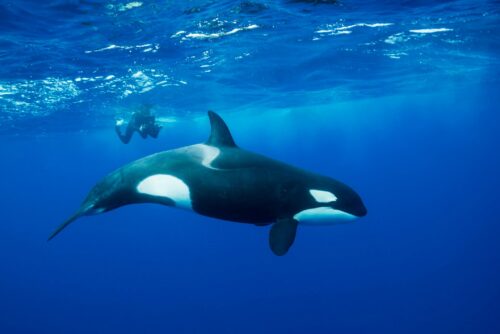Orcas that have been ramming boats are not “attacking” the vessels, but are most likely being playful, leading scientists have said. The experts have warned that the false narrative is putting the animals at risk of retribution from humans.
Iberian orcas started ramming vessels along the Spanish and Portuguese coast in July 2020, with at least 11 juveniles and four adult females believed to be involved. According to the Cruising Association, three yachts were sunk in 2022 and 2023 after orca interactions, the BBC wrote.
Some boats had toothmarks on them, while others appeared to have been rammed by a whale’s head or body multiple times, leading to them being towed into port. Since spring 2021, at least five boats have sunk as a result of damage, the Guardian reported.
More than 30 marine scientists from around the world have signed an open letter explaining that these orcas were showing a wide range of behaviours, many of them “playful social behaviour”, and that these should not be characterised as “attacks”.
Photo: Getty images
Behaviour never seen before
One theory is that the behaviour was the equivalent of a cultural fad, which means it might just disappear – much as fashion trends come and go with people.
The letter states:
We urge the media and public to avoid projecting narratives onto these animals. In the absence of further evidence, people should not assume they understand the animals’ motivations. The orca is an intelligent, socially complex species, and each population has its own culture—different vocalisations (known as dialects), prey preferences, hunting techniques, even different social structures and migratory behaviours.
The Iberian orcas are exhibiting a behaviour never before seen with this consistency among cetaceans—even in the days of industrial whaling from wooden ships and boats, when far larger whales were known to smash or otherwise damage vessels, such incidents were relatively uncommon. Science cannot yet explain why the Iberian orcas are doing this, although we repeat that it is more likely related to play/socialising than aggression. However, it is unfounded and potentially harmful to the animals to claim it is for revenge for past wrongs or to promote some other melodramatic storyline.
The open letter can be read in full here.
